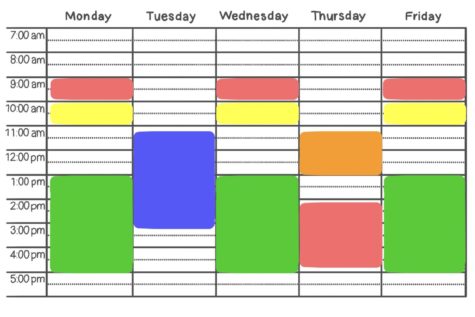OPINION | Creating a balanced class schedule is crucial
April 20, 2022

For some, college is arguably one of the best times in a young adult’s life. For others, however, college can cause people to struggle with mental health issues, specifically those that arise from stress surrounding academic, financial and/or career related issues.
Creating balance is something that many college students struggle with; difficulties arise when students feel the pressure to manage school work along with a multitude of other factors such as social obligations, work and career, mental health and physical health.
Junior finance major, Teddy Reese, said, “Definitely taking a high number of credit hours has restricted me from being able to partake in the amount of extracurricular activities outside of class [that I would like].”
While these stressors vary depending on the individual, many of these issues are inevitable for students. Thus, it is important that students, specifically those here at Tulane University, learn how to create and manage a schedule that works for them. This can begin with curating a course schedule tailored to your own needs and capabilities.
Tulane’s class registration for Fall 2022 began on April 6th, and the majority of students have already begun registering for courses. However, these registration dates may have snuck up on many students amidst the chaos of spring break, midterms and summer preparations.
As such, many students are likely still working on adjusting their schedules for the upcoming semester. This gives students who are not yet certain about the upcoming semester the opportunity to tailor their schedules to create the most balance possible.
In order to maintain a well balanced schedule each semester, it is important that students familiarize themselves with their degree audits. Whether an incoming freshman or second semester senior, knowing which classes are needed to complete your degree(s), as well as the number of credit hours needed to be on track for graduation, is essential.
Reflecting further on his past course schedules, Reese said, “I have taken four to five classes that give me credit to the undergraduate credit limit but don’t help with my actual degree audit, so if I could’ve taken just one more finance class in previous semesters, I wouldn’t have to take 22 credit hours next semester.”
Familiarization with one’s audit will help students plan for semesters to come. This is key because no one wants to end up having one semester filled with their most difficult major requirements while another semester is filled with random electives.
However, curating a personalized and balanced course schedule can be complicated, and interpreting audits can be confusing. Students should not be afraid to reach out to their academic advisors for help––that is what they are here for!
Advising is one of the most crucial and beneficial resources available for students at Tulane. The school has a talented, capable team of advisors who are available to help students in a multitude of ways.
Students can schedule appointments with their assigned advisors, who can then aid them in declaring majors and minors, learning about pre- professional pathways and, of course, creating a balanced course schedule.
Meeting with advisors and creating their most ideal schedules will aid students in several ways, as balanced schedules can help to lower stress levels and lead to higher academic achievement.








Leave a Comment